
New airmail 1d, 3d and 6d stamps were issued on 4 May 1935. The design by J. Berry was based on a photograph of Bell Block aerodrome, New Plymouth and the plane is a prototype of the DH 86 Express.
The dies and plates were produced at the Australian Note and Stamp Printing Office, Melbourne and the stamps were printed at the Government Printing Office in Wellington.
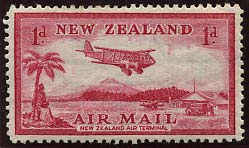
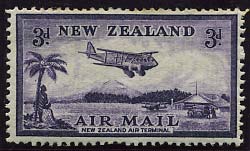
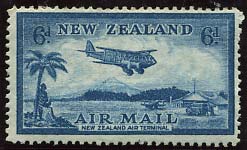
The paper was that used for the recess printed George V stamps and so the NZ and star watermark appeared twice on each stamp. The sheets were of 60 stamps in 10 rows of 6.
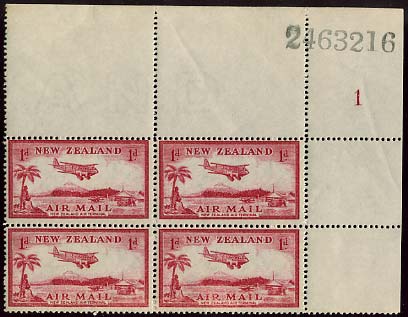
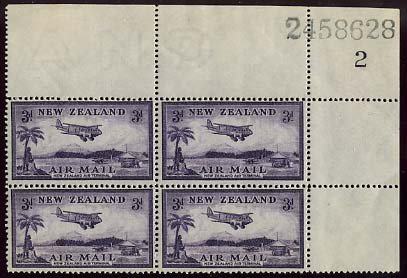
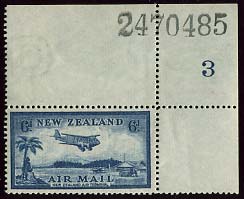
There was one plate for each value; plate 1 for the 1d, plate 2 for the 3d and plate 3 for the 6d. The plate number appeared in the top right corner along with the sheet number.
The perforation was 14 and a line machine was used.
The issue date of the stamps had been brought forward to ensure that they
were available for the
proposed George V Jubilee airmail to the UK
on 17 May 1935.
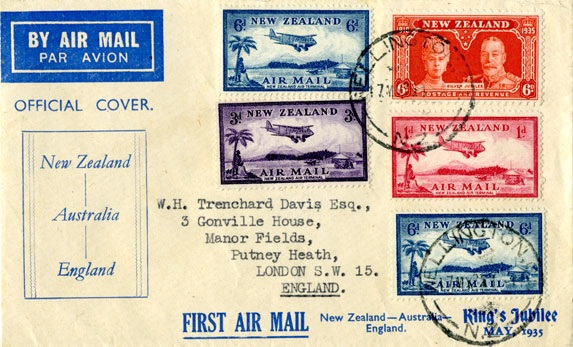
However, as Kingsford Smith's trans-Tasman flight of 15 May from Australia to New Zealand had to be abandoned, the New Zealand to Australia return flight did not take place.
The mail had already been postmarked by the time that news came of the failed crossing and was sent to Sydney by sea. This cover has the set of 1935 airmail together with a George V Jubilee commemmorative.
The 1d was withdrawn on 31 December 1938 and the 3d and 6d stamps were not replaced when stocks were exhausted as New Zealand had joined the Empire Air Mail Scheme in July 1938.
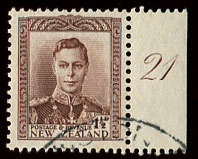
After 4 August 1938, all first-class mail from New Zealand
for Empire countries was automatically sent by airmail whenever
that was available.
(The trans-Tasman leg was, of course, still by sea!)
The rate was 1½d per ½ oz.
Although no further special airmail stamps were issued, the
George VI 1½d
in sepia was issued on 26 July 1938 to satisfy the new service.
The above information is taken from The Postage Stamps of New Zealand Vol 1, published by the Royal Philatelic Society of New Zealand in 1938. All scans were made by the author.